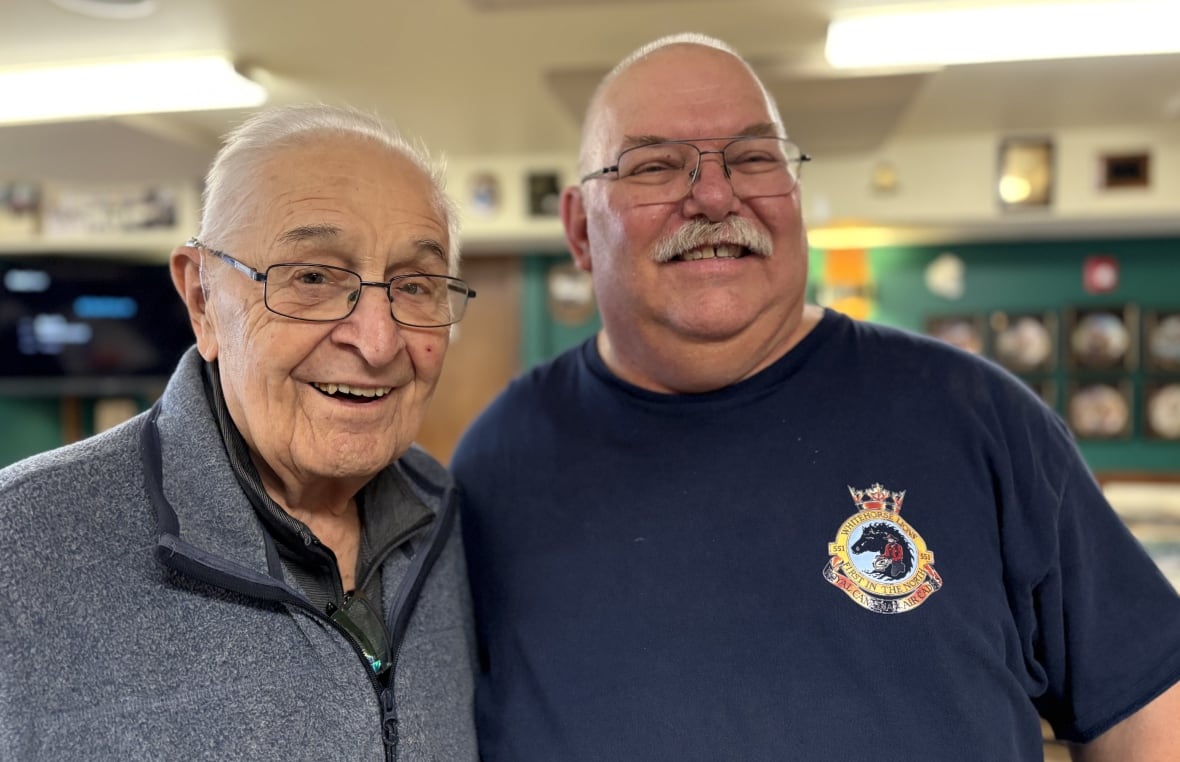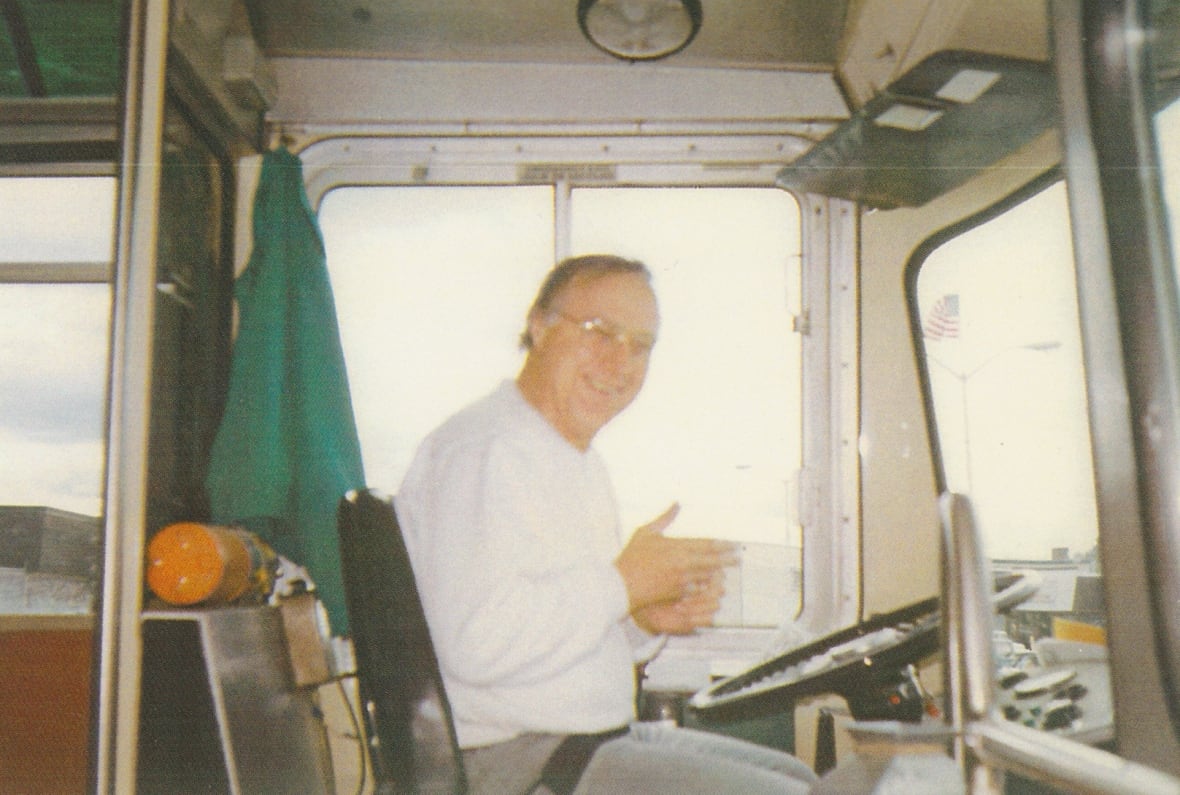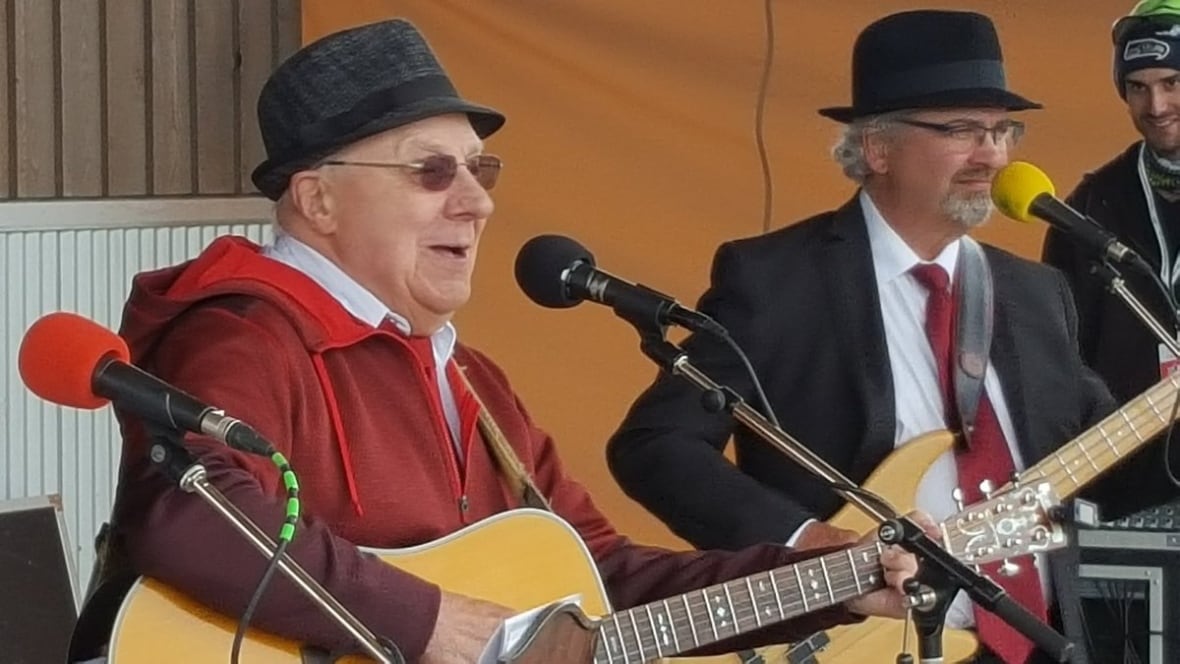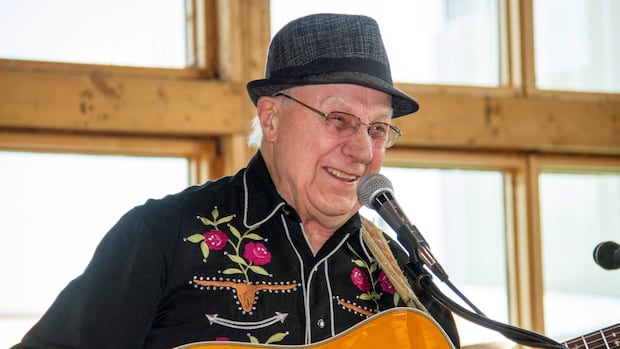Asked in 2013 how he felt about being named for a Yukon Commissioner’s Award, Hank Karr’s response was typically plainspoken, honest and humble.
“I keep wondering why I’m receiving these awards,” he mused. “But after receiving it, I’m happy that I did receive it.”
Karr, the country crooner, legend of the territory’s music scene and author of a beloved catalogue of songs celebrating his adopted home in the North, died over the weekend in Whitehorse. He was 86.
“He’s an icon. He really is,” said Joe Mewett, president of the Yukon Legion, where Karr played many times over the years.
“You know, when I first met him, I didn’t really know who he was. But over the years, you kind of find out who the guy is and what he means to the Yukon.”
Karr first came to the Yukon in the 1960s and soon made a name for himself performing in local bars, singing classic country songs in a rich baritone not unlike one of his own musical heroes, Jim Reeves. Other Karr favourites included Ray Price, Marty Robbins and a Canadian namesake, Hank Snow.
Karr would stay true to those early influences throughout his performing career, singing and writing songs that had little flash about them but connected with people simply and directly.
“Times change, and I think we have to kind of move with the times too. But right now, country music I think is too extravagant for me, and for a lot of people I speak to,” Karr reflected in 2013.
“The stuff that I do, and the real country songs, they are like real life experiences. So you can relate. You can relate to some of it, and mostly you can understand the lyrics,” he reflected.
Karr’s muse and inspiration always seemed to be the territory itself — its spectacular mountain vistas, wild rivers and colourful Gold Rush history. His 1981 LP Paddlewheeler and other Northland Ballads, produced by the CBC Northern Service, is a collection of Karr’s versions of songs by the late Yukon songwriter Al Oster, including ’98 Trail, Yukon Gold, Buckets of Steel, and Yukon Book of Memories.
Karr’s signature song, though, would always be After Yukon. The song, written by Karr himself, pays loving tribute to each of Canada’s provinces and territories but keeps returning to the head-scratching question: “Where do you go after Yukon?” Karr’s answer was simple, and there was no doubting that he meant it: “You’re just fooling yourself if you think there’s something else, because there’s just nothing left after Yukon.”
Mewett remembers that song in particular as a mainstay of Karr’s live set.
“It’s one of those staples that everybody seems to enjoy. And it’s just — it’s Hank,” Mewett said.
Ray Park, another musician who moved the territory in the 1960s, was a longtime friend of Karr’s and the two played dozens of shows together over the years. Park called his friend a “great entertainer.”
“When we were on stage, we had fun — you know, kibbitzing and laughing. It was just great,” Park recalled.
“I’m gonna miss him. He was a nice guy, you know, a good friend.”

Karr’s son, Hank Karr Jr., describes how his dad came from a poor upbringing in a small town in Saskatchewan and left home at a young age.
“So he knew what lonely was,” said Hank Jr.
Hank Sr. would experience his own financial struggles over the years, including an an ill-fated business venture in New Brunswick, where Hank Jr. says his parents effectively “lost their shirts.”
The Yukon offered his parents the opportunity to build a better life, says Hank Jr. They worked hard, made a lot of friends, focused on raising a family and never looked back.
“Once Mom and him plugged in to the Yukon, I think they found home, and an opportunity,” said Hank Jr.
“I just honestly believe that he felt in his heart, he always owed the Yukon for what it did for him.”

Hank Sr. became a regular at the local bars, sometimes playing late into the night before getting up early for his day job driving a Whitehorse city bus. He also coached kids’ baseball for many years. As a singer, he’d often perform for free, including his Remembrance Day shows at the Whitehorse Legion.
In his later years, he performed less often but could still draw an audience. Some of his favourite gigs were at the Yukon Golden Age Society’s monthly dinners, where he described recognizing “99 per cent of the people that I performed for when I was really active in the bars.”
Hank Sr. would receive many honours through his life. Along with the Yukon Commissioner’s Award, he received the King Charles III Coronation Medal earlier this year, and in 2019 was given a Heritage Award at the Western Canadian Music Awards. He and his wife Pam were also named “Mr. and Mrs. Yukon” for the Sourdough Rendezvous festival in 2019.
Being invited to perform at Expo 67 in Montreal in 1967 was always a career highlight for his dad, Hank Jr. said. But he also said the many achievements and accolades never went to the singer’s head.
“One thing he didn’t do was put his trophies on the shelf,” said Hank Jr.

Carol Thomson, with the Golden Age Society of Yukon, is a longtime friend and admirer of Hank Sr. She remembers how he used to “kick me out of the bar when I wasn’t old enough.”
Thomson described Hank Sr. as the real deal.
“He was Yukon. He knew everybody. He knew our stories,” she said. “He had the humour, he had the love, he was genuine and it didn’t matter who you were, you were Hank’s friend.
“Whether he was that persona on stage, he was the same person when he came to your home and partied with you. He was the same guy.”

Thomson also recalled how her late mother had lost her sight after a stroke and managed to find comfort in simply listening to Karr’s songs.
“She’d listen to him day and night, because she had no idea whether it was day or night. And Hank got her through those last years of her life,” Thomson said.
“I loved him dearly and I will miss him dearly, as the rest of the Yukon will.”







